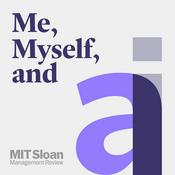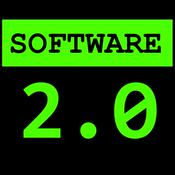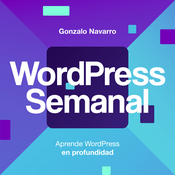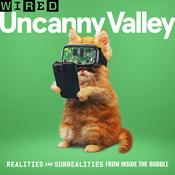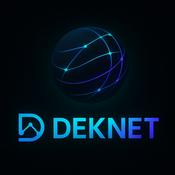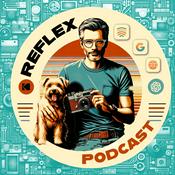The Daily AI Show
The Daily AI Show Crew - Brian, Beth, Jyunmi, Andy, Karl, and Eran

Último episodio
710 episodios
- College has always sold two products at once, even if we only talk about one. The first is shaping. You learn, you practice, you get feedback, you improve, and you leave more capable than when you arrived.
The second is sorting. You proved you can survive a long system, hit deadlines, work with others, navigate bureaucracy, and keep going when it gets tedious. Employers used the degree as a shortcut for both.
AI puts pressure on each product in a different way. Agents make “shaping” cheaper and faster outside school. A motivated person can learn, build, and iterate at a pace that no syllabus can match. At the same time, agents flood the world with output. When everyone can generate a report, a slide deck, a prototype, or a legal draft in hours, output stops signaling competence. That makes sorting feel more valuable, not less, because organizations still need a defensible way to pick humans for roles that carry responsibility.
So college faces a quiet identity crisis. If the shaping part no longer differentiates students, and the sorting part becomes the main value, the degree shifts from education to gatekeeping. People already worry that college costs too much for what it teaches. AI adds a sharper edge to that worry. If the most important skill becomes judgment, responsibility, and the ability to direct and verify agent work, then the question becomes whether college can shape that, or whether it only sorts for people who can endure the system.
The Conundrum:
In an agent-driven economy, does college become more valuable because sorting is the scarce function, a trusted filter for who gets access to opportunity and decision rights when output is cheap and abundant, or does college become less valuable because shaping is the scarce function, and the market stops paying for filters that do not reliably produce better judgment, better accountability, and better real-world performance? If AI keeps compressing skill-building outside institutions, should a degree be treated as proof of capability, or as proof you fit the system, even if that proves the wrong thing. - Friday’s episode moved quickly across real-world AI acceleration. The show opened with Spotify confirming its top engineers have not written code by hand in months, reinforcing how fast AI coding has gone mainstream. From there, the conversation turned to Gemini 3.0 Deep Think’s major benchmark leap, new neuron-powered biological computing startups, ultra-fast coding models like Codex Spark, and the rapid growth of Chinese open models. The throughline was clear, capability is compounding across software, hardware, and biology at the same time.
Key Points Discussed
00:00:00 👋 Opening, Friday the 13th kickoff
00:01:10 🎧 Spotify says top engineers haven’t handwritten code since December
00:05:30 🤖 Dario Amodei prediction revisited, AI writing most code
00:08:40 📊 Gemini 3.0 Deep Think hits 85% on ARC-AGI-2
00:13:20 🧠 Aletheia research agent, proof verification and math reasoning
00:17:40 ⚡ Codex Spark, 1,000 tokens per second and real-time coding
00:23:10 🔄 Multi-model workflows, Spark vs larger reasoning models
00:28:20 🧩 Model routing frustrations, Gemini and PRD over-generation
00:33:10 🧬 Biological Computing Company, neuron-powered AI hardware
00:38:00 💰 Anthropic funding round, $350B valuation and $14B run rate
00:42:10 🇨🇳 GLM-V and Minimax-V, Chinese open models surge
00:47:20 📈 Claude Code ARR hits $2.5B
00:50:40 🧠 AI intensifies work, Berkeley study reflection
00:54:30 💵 What $30B actually means in human terms
00:57:20 🏁 Weekend wrap-up, Conundrum preview, newsletter reminder
The Daily AI Show Co Hosts: Brian Maucere, Andy Halliday, and Beth Lyons - Thursday’s episode moved quickly from political activism around AI platforms into deeper structural questions about automation, energy, and hardware limits. The conversation began with the QuitGPT movement and broader tech activism, then shifted into Mustafa Suleyman’s warning that most white-collar tasks could be automated within eighteen months. From there, the discussion widened into China’s rapidly advancing open models, energy constraints, alternative compute architectures, and whether the future of AI runs on silicon, waste heat, or even living cells. The throughline was clear, capability is accelerating, but infrastructure and power are the real constraints.
Key Points Discussed
00:00:00 👋 Opening, February 12 kickoff, recap of prior episode
00:02:30 📰 Gary Marcus pushback on Matt Schumer’s acceleration claims
00:06:40 ✊ QuitGPT movement, political activism, and OpenAI donation controversy
00:11:20 🎨 Higgsfield controversy, IP concerns, and creator promotion rules
00:16:10 🧠 Mustafa Suleyman background, DeepMind, Inflection, Microsoft AI
00:21:30 ⚠️ Suleyman’s claim, most white-collar tasks automated within eighteen months
00:26:10 📉 Jagged disruption vs across-the-board automation
00:29:40 ⚡ Anthropic commits to offsetting data center power impacts
00:33:20 🧰 Anthropic expands free tier access to Claude Code and Co-Work features
00:36:10 🗂️ Claude Code deletion scare, iCloud recovery, and operational risk
00:39:20 🎥 Seedance video model examples, China’s open model acceleration
00:42:10 📊 GLM-5 benchmark positioning, Chinese open models near frontier
00:44:30 🔬 Unconventional AI $475M seed, direct-to-silicon compute vision
00:46:10 🧠 Wetware, biological compute speculation, and energy efficiency race
00:47:40 🏁 Wrap-up, OpenAI rumors, tomorrow preview
The Daily AI Show Co Hosts: Beth Lyons, Andy Halliday, and Karl Yeh - Wednesday’s episode centered on Matt Schumer’s blog post, Something Big Is Happening, and whether the recent jump in agent capability marks a true inflection point. The conversation moved beyond model hype into practical implications, from always-on agents and self-improving coding systems to how professionals process grief when their core skill becomes automated. The throughline was clear, the shift is not theoretical anymore, and the risk is not that AI attacks your job, but that it quietly routes around it.
Key Points Discussed
00:00:00 👋 Opening, Matt Schumer’s blog introduced
00:03:40 🧠 HyperWrite history, early local computer use with AI
00:07:20 📈 “Something Big Is Happening” breakdown, acceleration curve discussion
00:12:10 🚀 Codex and Claude Code releases, capability jump in weeks not years
00:17:30 🏗️ From chatbot to autonomous system, doing work not generating text
00:22:00 🔁 Always-on agents, MyClaw, OpenClaw, and proactive workflows
00:27:40 💼 Replacing BDR/SDR workflows with persistent agent systems
00:32:10 🧾 Real-world friction, accounting firms and non-SaaS tech stacks
00:36:50 😔 Developer grief posts, losing identity as coding becomes automated
00:41:00 🏰 Castle and moat analogy, AI doesn’t attack, it bypasses
00:44:30 ⚖️ Regulation lag, lawyers, and AI as an approved authority
00:47:20 🧠 Empathy gap, cognitive overload, and “too much AI noise”
00:49:50 🛣️ Age of discontinuity, past no longer predicts future
00:51:20 📚 Encouragement to read Schumer’s article directly
00:52:10 🏁 Wrap-up, Daily AI Show reminder, sign-off
The Daily AI Show Co Hosts: Brian Maucere, Beth Lyons, and Karl Yeh - Tuesday’s show was a deep, practical discussion about memory, context, and cognitive load when working with AI. The conversation started with tools designed to extend Claude Code’s memory, then widened into research showing that AI often intensifies work rather than reducing it. The dominant theme was not speed or capability, but how humans adapt, struggle, and learn to manage long-running, multi-agent workflows without burning out or losing the thread of what actually matters.
Key Points Discussed
00:00:00 👋 Opening, February 10 kickoff, hosts and framing
00:01:10 🧠 Claude-mem tool, session compaction, and long-term memory for Claude Code
00:06:40 📂 Claude.md files, Ralph files, and why summaries miss what matters
00:11:30 🧭 Overarching goals, “umbrella” instructions, and why Claude gets lost in the weeds
00:16:50 🧑💻 Multi-agent orchestration, sub-projects, and managing parallel work
00:22:40 🧠 Learning by friction, token waste, and why mistakes are unavoidable
00:26:30 🎬 ByteDance Seedance 2.0 video model, cinematic realism, and China’s lead
00:33:40 ⚖️ Copyright, influence vs theft, and AI training double standards
00:38:50 📊 UC Berkeley / HBR study, AI intensifies work instead of reducing it
00:43:10 🧠 Dopamine, engagement, and why people work longer with AI
00:46:00 🏁 Brian sign-off, closing reflections, wrap-up
The Daily AI Show Co Hosts: Brian Maucere, Beth Lyons, and Andy Halliday
Más podcasts de Tecnología
Podcasts a la moda de Tecnología
Acerca de The Daily AI Show
The Daily AI Show is a panel discussion hosted LIVE each weekday at 10am Eastern. We cover all the AI topics and use cases that are important to today's busy professional.
No fluff.
Just 45+ minutes to cover the AI news, stories, and knowledge you need to know as a business professional.
About the crew:
We are a group of professionals who work in various industries and have either deployed AI in our own environments or are actively coaching, consulting, and teaching AI best practices.
Your hosts are:
Brian Maucere
Beth Lyons
Andy Halliday
Eran Malloch
Jyunmi Hatcher
Karl Yeh
Sitio web del podcastEscucha The Daily AI Show, Topes de Gama Unplugged y muchos más podcasts de todo el mundo con la aplicación de radio.es

Descarga la app gratuita: radio.es
- Añadir radios y podcasts a favoritos
- Transmisión por Wi-Fi y Bluetooth
- Carplay & Android Auto compatible
- Muchas otras funciones de la app
Descarga la app gratuita: radio.es
- Añadir radios y podcasts a favoritos
- Transmisión por Wi-Fi y Bluetooth
- Carplay & Android Auto compatible
- Muchas otras funciones de la app


The Daily AI Show
Escanea el código,
Descarga la app,
Escucha.
Descarga la app,
Escucha.












